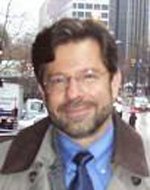헤리티지재단이 ‘대량살상무기와 미국 사회’ 및 테러분자들이 미국과 우방국에 가할 수 있는 공격 방법 및 테러 방지대책을 논의하기 위해 전문가회의를 최근 개최했다.
이번 회의에서 가장 큰 우려의 대상은 핵무기 확산이었다. 세계 제1의 테러 지원국인 이란의 핵무기 보유를 막지 않을 경우 핵무기가 걷잡을 수 없이 확산될 것이라는 데 전문가들은 의견을 같이
 |
| 클리퍼드 D 메이 美 민주주의 수호 재단 총재 |
테러분자들이 생물학무기를 사용하여 천연두와 에볼라 바이러스 및 출혈성 열병을 퍼뜨리는 시나리오는 핵무기 사용보다 더 무섭다. 농약 살포용 비행기로 4.5㎏의 탄저균을 뿌릴 경우 2차대전 때 발생한 미국인 사망자보다 더 많은 사람이 죽을 수 있다. 또 유전자를 변형시켜 전염 능력이 대폭 강화된 병원균의 살포도 예상할 수 있다. 그런 병원균 가운데 HIV 바이러스가 포함된다.
이번 헤리티지재단 회의에 참석한 전문가들은 ‘더러운 폭탄’으로 더 널리 알려진 방사능 오염장치에 관해서도 논의했다. 이 장치는 조립이 매우 간단하다. 라듐, 라돈, 토륨 같은 방사능 물질 속에 재래식 폭탄을 설치하는 것으로 제작이 끝난다. 이런 장치는 핵폭탄이나 생물학무기 같은 살상능력은 없으나 심리적 혹은 경제적 영향이 매우 클 수 있다.
마흐무드 아흐마디네자드 이란 대통령이 ‘미국이 없는 세계’라고 요약한 목표를 위해 테러분자들이 그밖에 사용할 수 있는 방법은 무엇일까.
올해 2월까지 미 국가정보국 국장을 지낸 마이크 매코넬 제독은 컴퓨터와 인터넷을 무기로 사용하는 사이버전쟁이 점점 더 걱정이 된다고 최근 ‘식스티 미니트’와의 인터뷰에서 말했다. 미국에 전략적인 손해를 입히기를 원하는 적들이 미국의 전기 공급을 방해할 가능성이 있다고 매코넬 제독은 말했다.
매코넬 제독은 적들이 사이버 공격을 시도하여 미국의 금융시스템을 관리하는 전자 운영체제와 기록을 파괴하여 경제를 혼란에 빠뜨릴 수도 있다고 지적했다.
전기 공급망과 모든 컴퓨터 운영체제를 파괴할 수 있는 또 다른 방법이 전자기파 공격이다. 미국 정부는 전자기파 공격이 가하는 위협을 평가하기 위해 위원회를 구성했다. 미국 상공에서 핵탄두가 폭발할 경우 강력한 충격파를 만들어 “군사 및 민간 통신과 발전 시설, 교통, 상수도 등 대부분의 인프라를 파괴할 것”이라고 이 위원회는 미 의회에 보고했다.
이번 회의 참석자들은 테러분자들이 그런 무기를 사용할 가능성이 지구온난화보다 더욱 시급한 위협이라는 데 의견을 같이했다. 그러나 미국을 비롯한 테러의 표적 국가들이 방어대책을 결정하기 위한 정상회의는 소집된 바 없다.
미국이 적의 테러행위를 방지하려면 수비와 공격을 병행해야 한다. 미국은 적들을 계속 추적하여 테러 훈련소를 색출하고 테러 무기를 제작하는 연구실과 안전가옥을 파괴해야 한다. 그렇게 함으로써 적들은 신변의 위협을 느끼게 될 것이다. 또 생포된 테러범들이 미국 시민들의 세금으로 세계적인 선전을 할 수 있는 기회를 갖도록 해서는 안 된다.
미국은 전진하느냐 후퇴하느냐, 잡을 것이냐 잡힐 것이냐, 이기느냐 지느냐의 선택을 해야 한다. 야만인들이 문 앞에 나타났을 때 미국인들은 문을 잠그는 것 이상의 조치를 해야 한다. 그런데 미국인들은 아직 문조차 잠그지 않고 있다.
조지 오웰은 국가안보에 관한 기본원칙을 다음과 같이 명확하게 밝힌 바 있다. “용맹한 사람들이 국민을 지키기 위해 폭력을 행사할 준비를 마쳤기 때문에 국민들은 밤에 편히 잘 수 있다.”
과거에는 규칙이 적용되었을지 모르나 지금은 아니라고 생각하는 사람들이 오늘날 서방세계의 대부분을 이끌고 있다. 이런 상황이야말로 국민들이 밤잠을 설치게 만드는 원인이 되어 마땅하다.
클리퍼드 D 메이 美 민주주의 수호 재단 총재
워싱턴타임스·정리=오성환 외신전문위원
What, me worry?
By Clifford D. May
The Heritage Foundation recently convened a meeting of experts to discuss "Weapons of Mass Destruction and America's Communities," the various ways terrorists might attack our allies and us in the future, and what might be done to stop them. You can imagine what a merry gathering this was.
The most obvious concern: the spread of nuclear weapons. There was consensus that if Iran, the world's leading sponsor of terrorism, is not prevented from acquiring nukes, the result will be a nuclear proliferation "cascade." Before long, so many countries would have so many nuclear devices that the chances of terrorist groups getting their hands on at least a few of them would increase exponentially.
A scenario perhaps even more frightening: Terrorists using biological weapons, setting off epidemics of smallpox, Ebola virus or other hemorrhagic fevers; a crop duster spreading 10 pounds of anthrax causing more deaths than in World War II; genetically engineered pathogens - for example, a super contagious form of HIV.
We also discussed radiological dispersal devices, more commonly known as "dirty bombs." Such weapons are fairly simple to construct: radioactive materials - e.g., radium, radon, thorium - are wrapped around a core of conventional explosives. Though the device would not carry the lethality of a nuclear or biological weapon, its psychological and economic impact could be substantial.
How else might terrorists advance toward their goal, succinctly articulated by Iranian President Mahmoud Ahmadinejad as "a world without America"?
Adm. Mike McConnell, who until February of this year was the director of national intelligence (America's top spy), recently told Steve Kroft of "60 Minutes" that he was increasingly concerned about cyberwarfare, the use of computers and the Internet as weapons.
"If I were an attacker and I wanted to do strategic damage to the United States ... I probably would sack electric power" throughout as much of the country as possible, he said. Adm. McConnell also worries about the possibility that a cyberattacker could destroy the electronic processes and records that keep track of money and its movements, thereby setting off an economic collapse.
Another way to destroy the electric grid as well as everything computerized: an Electromagnetic Pulse Attack. In 2001, the U.S. government established a commission to "assess the threat to the United States" from an EMP attack. The commission reported to Congress that if a nuclear warhead were to be detonated at high altitude over the American mainland, the blast would produce a shock wave so powerful that it would "cripple military and civilian communications, power, transportation, water, food and other infrastructure."
Among the experts attending this conference, all agreed that the use of such terrorist weapons is a more serious and imminent threat than is "global warming." Yet no summits are being organized to decide how the United States and other targeted nations can best defend themselves.
I would argue that if we are to prevent our enemies from doing the kind of damage they intend, we must play offense as well as defense. We'll need to keep our enemies on the run, pursuing them in their training camps, laboratories and safe houses, forcing them to look over their shoulders and worry that they may be killed or captured, and being captured should not mean being presented on a global stage to spout propaganda at American taxpayer expense.
Our choice is to advance or retreat, hunt or be hunted - win or lose. There is no fortress we can build, no permanent stalemate we can achieve, no gesture or concession that will make us inoffensive to our enemies. When the barbarians are at the gate, you need to do more than lock up, and we haven't even done that yet.
George Orwell articulated a fundamental rule of national security: "People sleep peaceably in their beds at night only because rough men stand ready to do violence on their behalf." Much of the Western world is now led by people who believe that rule may have applied in the old days but no longer. If that doesn't keep you awake at night, nothing will.
cascade:여러 단의 폭포 disposal:배치 rough:난폭한, 사나운
Copyright ⓒ 세계일보. 무단 전재 및 재배포 금지
![[설왕설래] 덴마크, 86년 만의 시련](http://img.segye.com/content/image/2026/01/07/128/20260107516825.jpg
)
![[세계포럼] 마두로 몰락, 정세격변 대비해야](http://img.segye.com/content/image/2026/01/07/128/20260107516817.jpg
)
![[세계타워] ‘노골적 이익중심외교’의 등장과 함정](http://img.segye.com/content/image/2026/01/07/128/20260107516794.jpg
)
![[기고] ‘K방산’에도 수사학이 필요하다](http://img.segye.com/content/image/2026/01/07/128/20260107516747.jpg
)








